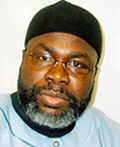It was from reading VANGUARD’s columnist, Pini Jason, last Tuesday that I learnt of Godson Offoaro’s death. Steve Nwosu confirmed it on Friday, in DAILY SUN. I called Nwosu to rejoice with him about his lucky escape from robbers that shot him in the head and his survival of the ordeal.
I also insisted that he sent new yams from Imo State for ‘daring’ to share my birthday, September 5th, and the mischievous guy, who grew up in Kwara State, said he would rather we ate wara(cheese), the FulBe contribution to the culinary makeup of Kwara State! I also commiserated with him on the passing of Godson.
I contacted Godson sometime last year and we re-collected times back at the University of Lagos; we promised to find time to link up. Unfortunately we never got to meet till his death a few days ago.
The last time I saw Godson was in 1981; we were neighbours at the El-KanemiHall. I was the President of UNILAG’s Marxist League and he held stridently, right-wing, anti-communist views, but we endlessly debated issues of national development.
Those were truly liberating moments in African history! My generation of activists had produced the famous NANS “Nigerian Students’ Charter of Demands”.
The Nigeria labour movement under the progressive leadership of Hassan Sumonu was consolidating the place of the working people in our national life just as the alliance of workers, students and patriotic intellectuals was burning a radical imprint on Nigerian life.
We were also within the democratic ambience of the Second Republic, despite its imperfections. In 1980, Godson decided to run for General Secretary of the Students Union Government, SUG.
He was intensely passionate about his candidacy and would accost students on the long stretch from El-Kanemi Hall to the academic area. He had a very musical approach to his campaign; he gestured animatedly, telling whoever cared to listen: “Offoaro is for you”; “I’m at your service”; “Vote for me”, etc.
Godson faced a formidable opponent in a beautiful lady, ImaNsa, who was rumoured to have connections at the highest political levels of Nigeria’s Second Republic. She ran a campaign that was in tune with those times in our national life; she brought in local musicians who followed her everywhere around the campus and her slogan was beaten out repeatedly on the talking drums: “ImaNsa is the answer”! No one really bothered to ask what the question was that Ima was answer for; and boy, could Ima dance!
It was a contest between erotic emotions and the cerebral posturing of Godson; there was no contest, because in the long run, the students went for emotions and Godson lost that election!
I read somewhere that he tried to enter politics again on his return from abroad, but he did not seem to be cut for the cloak-and-dagger world of Nigerian politics.
I found that his convictions remained consistent; he was a defender of the Igbo and an advocate for his rightful place within the context of the inter-elite struggle for advantage in Nigeria’s political life. From that perspective, he was unsparing in his attacks on the elite of Northern Nigeria, who he saw as the ‘problem’ or in more extreme circumstances, the ‘enemy’. Yet he remained for me that intellectual sparing partner from UNILAG’s EI-Kanemi Hall.
Looking back now, those were some of the best phases of our national life but we thought the ruling class was irresponsible and as young people we wanted a much better country; who would have reckoned then that we will arrive at the tragic pass of contemporary Nigeria? May Godson Offoaro’s soul rest in peace.


